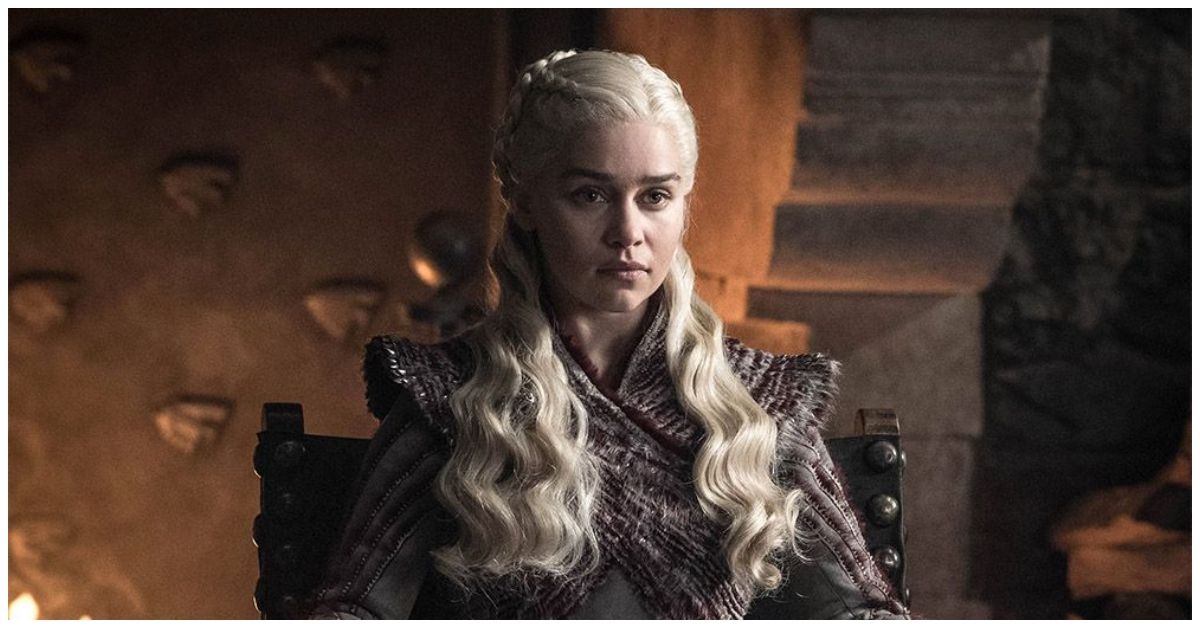When Game of Thrones finished, Emilia Clarke's life changed forever. The same can be said for Kit Harrington who married his co-star, Rose Leslie, and suffered from periods of depression since the show he grew up on came to its... well... rather abysmal ending. It's this ending that has gotten a lot of the blame for the public losing interest in George R.R. Martin's magnificent world. And George's world was 'magnificent'. Both his books and the first five and a bit seasons of the HBO show were truly awe-inspiring. It was event television that got people sitting down at the same time every Sunday night and, of course, got them tweeting and talking about it the next day. But nowadays... nobody cares.
Much like for the stars of the show, fans have seen their life changes too. But instead of banking a lot of money as Peter Dinklage did, fans have banked a lot of utter disinterest in the original show, the books, the upcoming prequel, and any other spin-offs HBO and Time Warner want to make. In all likelihood, Game of Thrones will never matter again. Not just because of the terrible series finale, but also because of a few other factors.
More Than The Series Finale Ruined It For Fans
It's easy to say that the series finale of Game of Thrones is the main cause for people's total disinterest in the property. While some argue that there would be no satisfying ending to the series, there's clearly a more competent one that series creators David Benioff and Dan Weiss could have made.
We should have seen a more detailed, drawn-out, and worthy climax. We should've had some sort of meaning to Jon Snow's parenthood as every other story choice should have some meaning to the overall narrative. We should have had dimension to the Night King and the White Walkers beyond them just being evil ice zombies. We should have had someone who actually made sense end up on The Iron Throne. And we surely should have had a proper arc into madness for Emilia Clarke's Daenerys Targaryen that actually made sense. The story choice was fine, but the execution was downright sloppy and a betrayal of her entire journey. These kinds of choices aren't just the fault of the finale. It's the fault of the entire season leading up to it, as well, to a lesser extent, the seasons that preceded it.
So much of what made Game of Thrones great in the first four seasons was partially abandoned come the fifth and sixth and almost completely abandoned in the final two.
We're talking about a lack of rushing, a true and brutal sense of cause and effect, characters who had a purpose, and clear themes that had clear and meaningful payoffs... All of these things are what we loved about Game of Thrones even if we couldn't really define it at the time. But when the show ran out of books to adapt, things started to go downhill. This, of course, is with a few exceptions in Season Five and the absolutely tremendous final two episodes of Season Six, "The Battle Of The Bastards" and "The Winds Of Winter".
But the writers of Game of Thrones forgot a lot about what made their show special and clearly just wanted to rush through the ending to get to other projects.
A Rushing And A Lagging Made Fans Lose Interest In The Show
According to a video essay by Captain Midnight, Game of Thrones was "slowly squeezed of all its nuance and complexity" as the creators of the show seemed done with it and wanted to move on to other projects. Instead of handing it over to writers working underneath them, they stayed on, reaped the financial benefits of being showrunners of the biggest show in HBO's history (as well as on television), and phone it in.
A lot of this also coincided with the decision to use Game of Thrones as a launchpad for a slate of other projects, most of which have been canceled. It was a corporate move made by Time Warner after it was acquired by an even bigger company, AT&T. Since then, it seems like HBO has moved more and more toward becoming a Disney+, a company mostly interested in franchises versus stories that are artist-driven.
Then there's the lagging element behind the loss of Game of Thrones' legacy and that's all in the hands of George R.R. Martin. Because he has taken so long with his final two books, he's seemingly lost a lot of his fan base. If he hadn't done the TV adaptation, or simply wrote his books to somewhat coincide with the release of each season, this wouldn't have been a problem.
But because the TV show ended so poorly and fans have absolutely no idea when HIS ending will be released, they just no longer care. There's no momentum and there's no desire to get hopes up about something that has so profoundly let us down.

